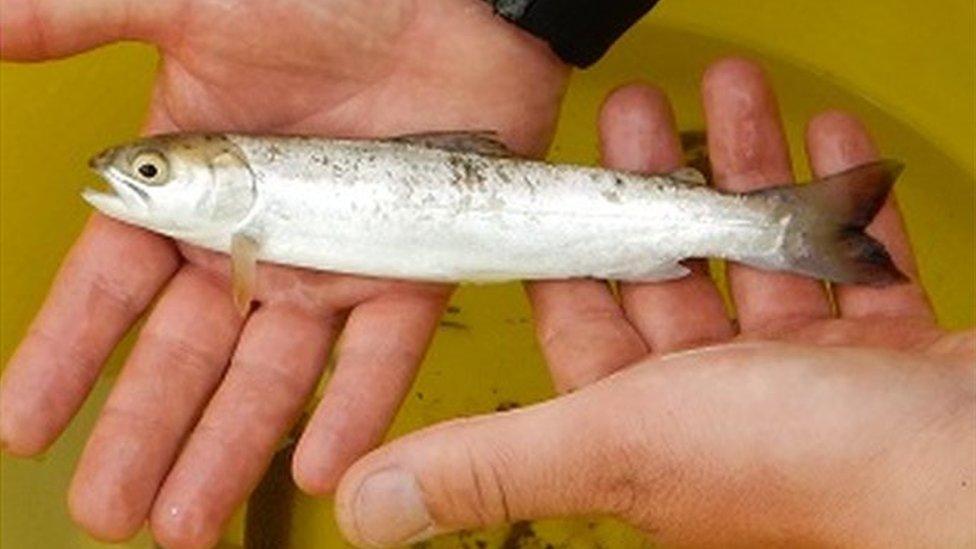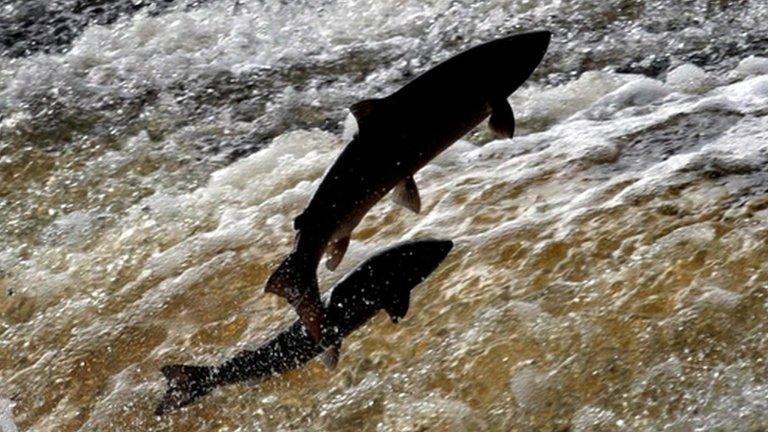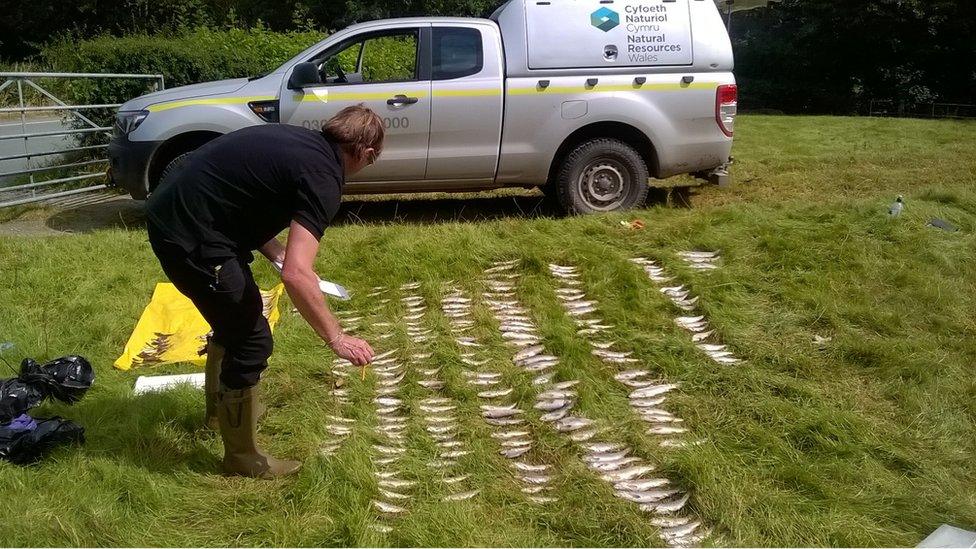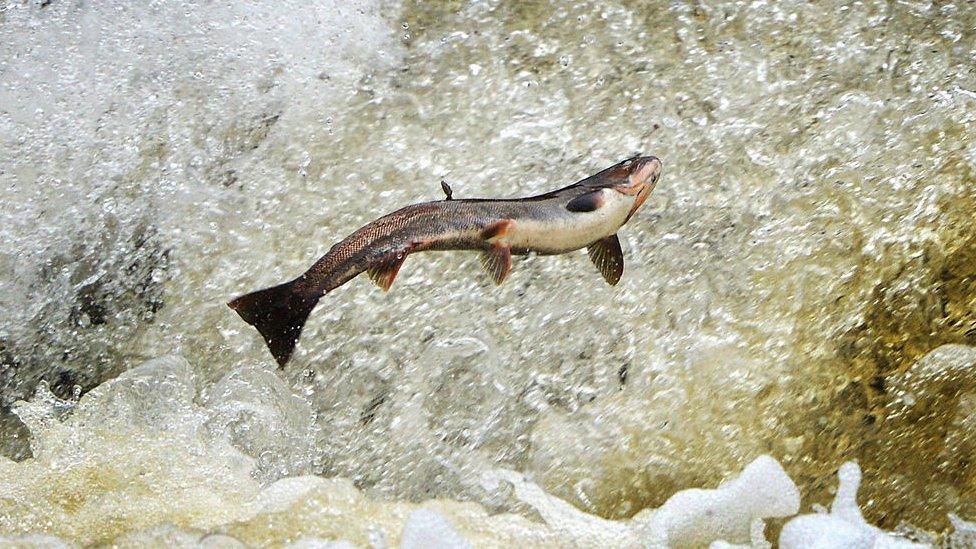Welsh Salmon stocks threatened by decline in fry numbers
- Published

Salmon stocks are facing an "unprecedented" threat following a decline in fry numbers in several Welsh rivers, an environmental body has said.
Natural Resources Wales (NRW) said fry (juvenile salmon hatched in spring, 2016) are at critically-low levels on the Usk, Towy and Clwyd.
It said these rivers previously produced consistent fry numbers.
Fry in the Tawe, Glaslyn and Wye are at normal levels.
Surveys in the Tywi catchment fisheries this year found salmon to be absent from 31 of the 37 sites.
Of the 13 sites on the Usk, eight had no salmon fry at all and the remaining five had very-low numbers.
The Clwyd catchment not only recorded no salmon fry, but saw its worse trout fry numbers on record.
Peter Gough, NRW principal fisheries advisor, said: "These initial survey results are unprecedented in Wales in 30 years of monitoring and are clearly very concerning, especially as our salmon and sea trout stocks already face serious challenges."
He said the decline in fry numbers will not only harm the biodiversity of the rivers but could also have an economic impact on the angling and tourism sector.
"It is therefore imperative that we continue our investigations to discover the cause of the decline and put in place actions to ensure the maximum number of fish are able to spawn this winter and in future," added Mr Gough.
The cause of the decline remains a mystery, but NRW said possible reasons include extremes of river flow over the winter and high water temperatures in the affected rivers.
The possibility of disease or parasites is also being considered, but is thought unlikely.
- Published3 October 2014

- Published14 August 2016

- Published3 July 2016
